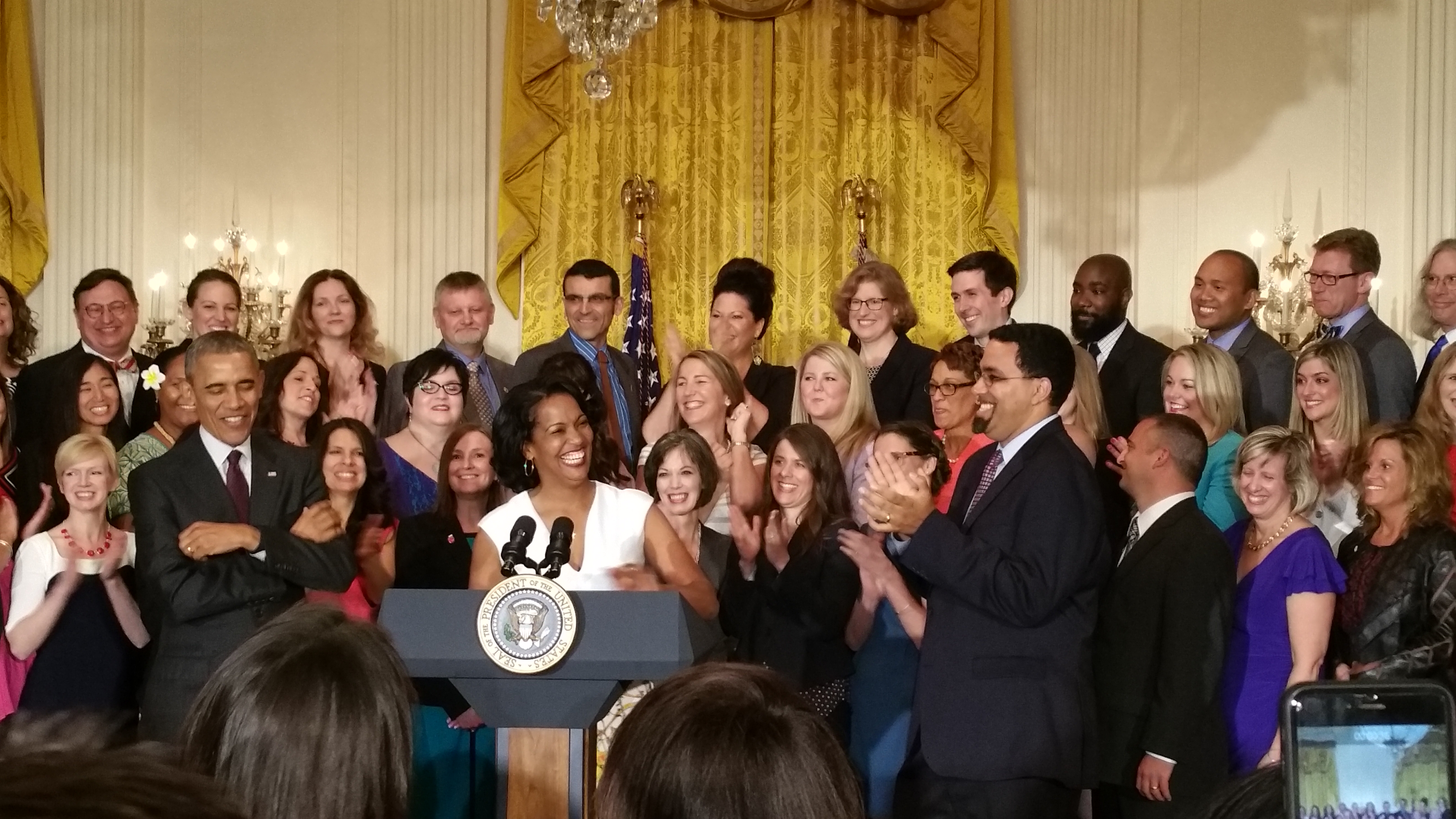
A few weeks ago I was honored to attend a Teacher of the Year event at the White House along with other great educators. The Teachers Guild team nominated me and I was excited to be chosen as an honored guest. I heard Jahana Hayes, the National Teacher of the Year, speak as well as President Obama. Jahana and the other state teachers of the year are all doing amazing work in their schools to positively impact students.
Need for Teacher Agency
As I moved around the rooms and talked with other educators, I was struck by all the success stories that I heard from teachers who have clearly gone beyond challenges at their schools to implement positive change while staying in the classroom. The experience gave me time to reflect on ways that we can provide more teachers with agency to take on leadership roles in their schools. Teachers don't always feel like honored guests when they walk into their schools. In conversations, I hear frustration over all of the expectations placed on teachers that prevent them from moving beyond the systems and silos that we unintentionally put into place. These expectations become roadblocks to change.
Many teachers who want to have more agency end up on the road to becoming school administrators. This is the clearest path available to having more influence at the school level. As school administrators, they quickly discover that expectations from school boards and state departments of education limits the autonomy that they had hoped to have in their new job role. What we really need is a way to provide teachers with a leadership pathway that allows them to have the best of both worlds.
Developing Teacher Leaders
Nationally and locally, there are many great programs that are trying to address the need for developing teachers as leaders. Teach to Lead. a program sponsored by the U.S. Department of Education, ASCD and the National Board for Professional Teaching Standards hosts summits throughout the year to provide teams of educators with time and resources to develop action plans that they can implement in their schools. At the summit, I learned about the Teacher Leader Model Standards, created by a consortium of educators. The standards provide a good framework for schools and districts that want to development programs for teacher leadership. The Teacher Powered Schools organization is a great place to see what works. The site has toolkits that you can use in your school to start discussions about how to provide teachers with more autonomy.
Teacher Agency Leads to Student Agency
I attended the Baltimore Teach to Lead Summit with my R2 Innovates team, Si Se Puede,and we were able to make a lot of progress on developing next steps for our initiative to bridge the gap that exists between home and school for our Latino families. As I've continued to work with the team in my district, I've seen amazing changes happen in the lives of students. By giving the team permission and time to design and try new ideas, the district has benefited with greater parent engagement and improved student achievement. LaChe Williams, a Conder Elementary School teacher, worked with the team to create a student-led conference format that has been shared throughout the district and on the Teachers Guild. If we want students to have agency in their learning, we have to give teachers agency to put their ideas into action.
From the Backseat to the Driver's Seat
One of our R2 Innovates team leaders said it best, "You come up with an idea about something that you want to change, and then it (the process) changes you." I encourage all educators to engage in conversations about ways to make teachers the honored guests and move them from the backseat into the driver's seat. Teacher leaders hold the key to meaningful change in our schools.